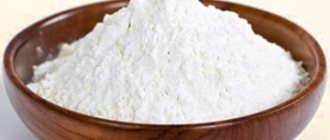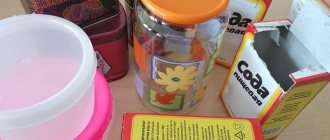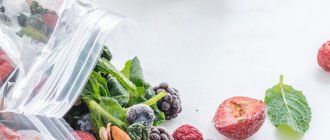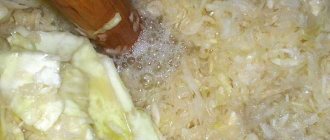Canned food has been known since the times of Napoleon, and are products processed in such a way that they do not spoil for quite a long time. For the first time, food was stored in tin cans in the United States. This type of conservation was patented in 1825. And later storage in glass containers was patented. Each type of canned product has very specific storage periods and conditions that cannot be neglected. There are known cases of severe poisoning and infection with dangerous botulinum toxins after consuming expired products. Therefore, you should know how to store canned food and which of them should not be eaten.
Product selection
When choosing canned food in a store, first pay attention to the condition of the can. If it is even slightly swollen, you cannot buy it. This may be a clear sign of fermentation inside the container, which produces gases that cause it to deform.
Also, the jar should not have any damage, dents, or chips. Any deformation can cause depressurization. As a result, dangerous bacteria begin to actively multiply inside the container.
An important rule when purchasing canned food is to determine their production date and expiration date, which are indicated by the manufacturer. Typically, the shelf life of canned food is 2 years from the date of production. If the product expires in the near future, it is better to refuse the purchase and look for a more recent product.
Mushrooms
In Russia, chanterelles, porcini mushrooms, boletus mushrooms, boletus mushrooms, honey mushrooms, aspen mushrooms and russula are most often canned. They are placed in jars either whole or in pieces, and before that they are boiled, salted or pickled.
Regardless of the processing method, mushrooms in glass containers, hermetically sealed and sterilized, can be stored:
- 2 years – if the room temperature does not rise above +25 °C;
- 3 years – at temperatures up to +6 °C.
Under what conditions should it be stored?
Storing canned food is quite easy. The following conditions must be observed:
- The standard storage temperature for most types of canned food is +3°C -+8°C.
- Air humidity should not be higher than 75%.
- If the product is in a clear glass container, it should be stored in a dark place so as not to be exposed to light.
Note! The time and conditions for storing canned food in open and closed containers differ significantly.
The best place to store canned food is a cool, dry cellar, balcony or basement. However, it is better to keep them in cardboard boxes. And the special anti-corrosion grease (if it is on the can) should not be washed off until opened. It is especially important to keep jars treated with technical petroleum jelly in basements or cellars with high levels of humidity so that they do not rust. Corrosion leads to depressurization of containers and the formation of harmful bacteria in its contents.
If possible, you need to place the jars so that they do not touch. This will protect them from mechanical damage in case of moving boxes, which can cause metal corrosion.
Most often, canned products are packaged in tin containers with an anti-oxidative coating (varnish, enamel, half-painted). During production, canned food is exposed to high temperatures (sterilization). This allows them to maintain quality for a long time.
The guaranteed shelf life of canned food is specified by the manufacturer. He is not responsible for the condition of the product after this time.
In the concept of how long canned food can be stored, the manufacturer includes the time during which a hole may appear in the can due to metal corrosion.
Vegetable salads
Salads are prepared in two ways - pre-pickle the vegetables with the addition of sugar, vinegar and salt, or boil all the ingredients for a while before putting them in jars.
The duration and storage conditions depend on the method of preparation:
- raw salads should be kept in the refrigerator, and you can eat them throughout the year;
- boiled salads will remain suitable for 1–2 years, and will not sour or explode even at room temperature (if they have been sterilized).
Storing stewed meat and other canned meats
Stew, like most canned meats, is a shelf-stable product.
Compliance with the conditions specified by the manufacturer will allow it to remain usable for 3 to 5 years.
- A jar made of tin and sealed by hot tinning with a welding seam allows the contents to be stored for up to 5 years.
- The shelf life of canned meat and stewed meat in glass containers and other containers is no more than 3 years.
The stew should contain nothing but meat, fat and spices. If cereals, soy, and preservatives are indicated as additives, such products are not considered meat and can be stored for no longer than 3 years.
How long you can store opened canned meat depends on the type of container in which they are located.
- A tin container will allow you to store the stew for no more than 2 days.
- The meat will keep in a glass jar for up to 7 days.
To extend the shelf life of homemade stew, you need to remove the layer of fat from it, melt it under sterile conditions and pour it back over the meat. Then the jar is closed with a plastic lid and placed on the top shelf of the refrigerator. There the product will be able to maintain its quality for another 4 - 5 months thanks to repeated preservation.
Adviсe
Don't seal up more than you can eat; long-term storage will most likely turn into a waste of time when it turns out that you have to throw away what you prepared so carefully. Balance your appetites and take into account past experience - if you know that your family does not like peppers or do not eat jams, use other products or try new recipes. By the way, if you want to try something new, don’t do it on an industrial scale right away, you may not like the result, and your time and energy will already be wasted.
You should not store canned food in the following places:
- toilet;
- under the sink near the trash can;
- near a stove or radiators;
- under the bath;
- passages where there is a risk of tripping and hitting it;
- hard-to-reach niches or cabinets, when there is a risk of dropping the jar when taking it out.
How to store canned fish
Canned fish can be stored for no more than 2 years, regardless of the type of sauce used.
This is due to the “aging” processes that occur in fish meat faster than in pork or beef. As a result, the product gradually loses its original quality.
Sprats occupy a special place among canned foods, so we have dedicated a separate article to them.
But this does not apply to preserves, which are made without heat treatment and with a large number of preservatives. The shelf life of preserves depends on the composition of the marinade and is indicated by the manufacturer.
Opened canned fish should be stored as follows.
- The remainder of the product is transferred to a glass or ceramic container.
- Then it is tightly closed and sent to the refrigerator.
The fish will need to be consumed within 2 days. But if the fish meat is completely covered with oil, this time increases by 2 times.
store preserved food after opening the container for no more than 4 - 8 hours, since this product does not undergo heat treatment and deteriorates faster.
Types of home canning, cooking technology
The category of homemade preparations includes pickled, salted, pickled, dried, dried, candied foods and jam. In addition to drying and freezing, there are three main methods of preparing food for future use - pickling, salting, and fermentation. This also includes canding, i.e. cooking fruits in sugar syrup. A striking example is jam and candied fruits.
How many years you can store homemade products depends on the technology of their production and compliance with the temperature regime. In this article we will look at storing the most popular household items, which include:
- pickled cucumbers, tomatoes, zucchini and other vegetables;
- pickled and salted mushrooms;
- canned compotes and juices;
- pickled cucumbers;
- sauerkraut;
- soaked apples;
- canned meat.
We recommend reading: How long and under what conditions are factory canned foods of various types stored?
The secret to the popularity of canning lies in its long shelf life, which is achieved by sterilizing the container along with its contents. Meat, dairy products, mushrooms, fruits and vegetables are canned. It is important to follow several rules:
- Do not violate the cooking technology described in the recipe. If it says that the jar will be sterilized for two hours, then this is what needs to be done in order to destroy dangerous microbes.
- Always add precisely measured amounts of salt, vinegar, sugar, citric acid and other preservatives. A deficiency will lead to accelerated spoilage of products, and an excess will affect the taste. You will experiment after testing the recipe.
- Wash vegetables, fruits and especially forest products thoroughly, peel them if necessary. Even a small piece of soil can cause serious botulinum toxin poisoning; you shouldn’t tempt fate. Do not use products that show signs of spoilage.
- For sealing, use only sterile lids. Wash all tableware thoroughly, pour boiling water over them, and dry.
- Before storing sterilized jars, make sure the lids are tight. To do this, keep the containers upside down for several days. The absence of air bubbles, cloudiness and leakage indicates a reliable seal.
An equally popular method of preparation is salting. Most often it is used for vegetables, mushrooms and meat, fish or lard. The method is based on a high concentration of salt in the brine, which slows down the development of microflora. When the product is completely salted, the fermentation process begins.
The next way to prolong the freshness of products is fermentation. It does not require heat treatment; the jar is sealed with a nylon lid. Vegetables and fruits are preserved through the fermentation process, which produces lactic acid. It is harmless to humans, and yeasts and fungi cannot develop in such an environment.
Fermentation is the absorption of carbohydrates by lactic acid bacteria, which are ultimately converted into a natural preservative - lactic acid.
Note to the hostess
Fermented products require special temperature conditions during storage.
Storing baby puree
Canned baby food intended for babies does not contain preservative additives or spices. Therefore, the shelf life of baby purees is much shorter, although it can be 1 year (vegetable, fruit purees).
The shelf life of baby meat puree does not exceed 2 years.
After opening the jar, baby vegetable or fruit puree can be stored in the refrigerator for no more than 24 hours, and without it - only 3 hours.
Despite the fact that canned foods can be stored for quite a long time, they also lead in the number of poisonings. To prevent this from happening, you need to know exactly where and how long different types of canned food can be stored.
Salt
Shelf life: more than 10 years
Throughout almost the entire history of mankind, salt, in addition to its culinary properties, served as an excellent natural preservative. With its help, people have extended the life of many products, even such capricious ones as, for example, fish. Obviously, the salt itself can also be stored for decades. Despite the fact that this product does not have any problems with microbiology, it is still better to approach its storage carefully. The packaging must be airtight, otherwise the salt will absorb moisture from the surrounding air and turn into stone. However, it will not lose its properties; if desired, it can be crumbled again and eaten.











